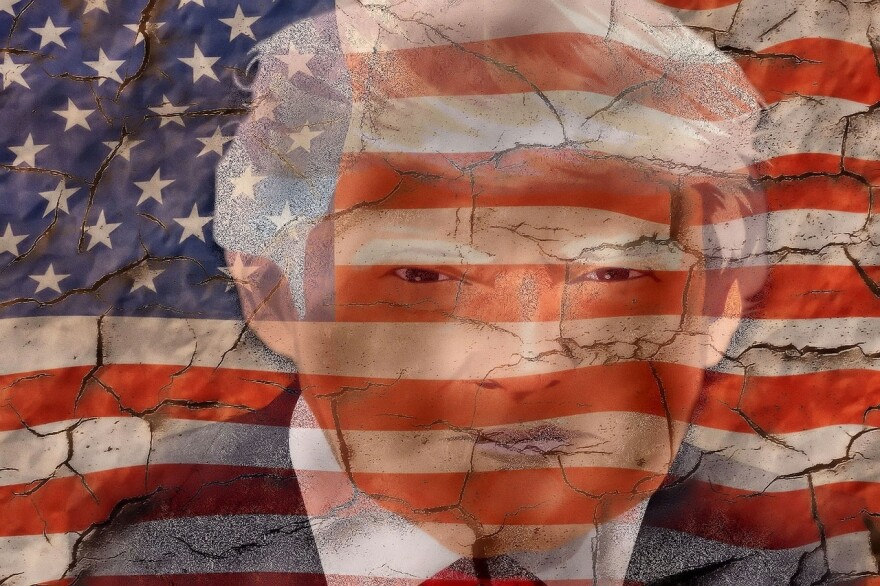When people lament “the only thing certain about Trump is the uncertainty he brings,” they are referring to his unpredictable and often impulsive approach to policymaking, which defies traditional norms in immigration, trade, foreign affairs, and federal governance. Unlike previous presidents who operated within established policy frameworks and relied on institutional guidance, Donald Trump often bypasses conventional decision-making processes, creating a volatile environment for domestic and global stakeholders alike.
In immigration, Trump’s abrupt decisions, such as the 2017 travel ban or the "zero tolerance" family separation policy, were often announced with little warning or coordination, sowing confusion among federal agencies, courts, and local governments. His shifting stance on DACA and legal immigration also created instability for millions, as executive actions replaced long-term legislative clarity.
In trade, Trump’s use of tariffs as a weapon in economic negotiations with China, Mexico, Canada, and the EU was unpredictable and at times contradicted his own administration's strategy. Businesses, farmers, and consumers were frequently left uncertain about market conditions, supply chains, and long-term economic forecasts.
In foreign affairs, Trump upended traditional alliances while cozying up to autocrats, praising North Korea’s Kim Jong-un one day and issuing threats the next. His decisions, such as the withdrawal from the Iran nuclear deal or the Paris climate agreement, were often sudden, announced via social media, and lacked follow-through or allied consensus.
Finally, Trump’s approach to staffing the federal government reflected this same chaos. He often favored loyalty over competence, leading to unusually high turnover, acting officials in key roles, and long-vacant positions across federal agencies. This churn weakened institutional knowledge and made long-term planning difficult.
Ultimately, the phrase captures the core of Trump’s governing style: disruptive, impulsive, and inconsistent leaving both allies and adversaries unsure of what comes next.
Trump has repeatedly acknowledged his own unpredictability, openly embracing it as a strategic asset, particularly in the realm of dealmaking and international negotiations. In interviews, speeches, and even in his books like The Art of the Deal, Trump has argued that being unpredictable keeps opponents off balance and gives him a tactical edge. He believes that if adversaries or negotiating partners cannot anticipate his next move, they are less likely to take hardline positions, allowing him to gain leverage and extract better terms.
Critics see Trump’s behavior as chaotic and destabilizing, but Trump frames it as a strength and deliberate. “I like being unpredictable,” he once said, arguing that predictability invites exploitation.
Nevertheless, Trump’s unpredictable nature has significant downsides for business, international allies, and long-term government planning. For businesses, frequent policy shifts—such as the imposition or sudden reversal of tariffs—create uncertainty that disrupts investment decisions, supply chains, and market stability. Companies struggle to make strategic plans when regulations and trade agreements can change with a tweet.
For U.S. allies, unpredictability erodes trust and complicates diplomacy. Traditional partners like NATO members, Japan, and South Korea have faced sudden changes in U.S. commitments, leading to questions about American reliability. Allies cannot confidently coordinate military, economic, or environmental policies when leadership signals shift without warning.
Within the federal government, long-term planning for major threats—such as climate change, pandemics, or cybersecurity—is undermined by inconsistent direction. Programs are launched only to be defunded or reversed abruptly. Trump’s tendency to staff key positions with loyalists or leave roles vacant further weakens institutional capacity to plan and respond effectively.
Guest:
Philip Luck, an economist and former Biden trade official, is now with the Center for Strategic and International Studies,
"The Source" is a live call-in program airing Mondays through Thursdays from 12-1 p.m. Leave a message before the program at (210) 615-8982. During the live show, call 833-877-8255, email thesource@tpr.org.
This discussion will be recorded on Thursday, June 26, 2025.



